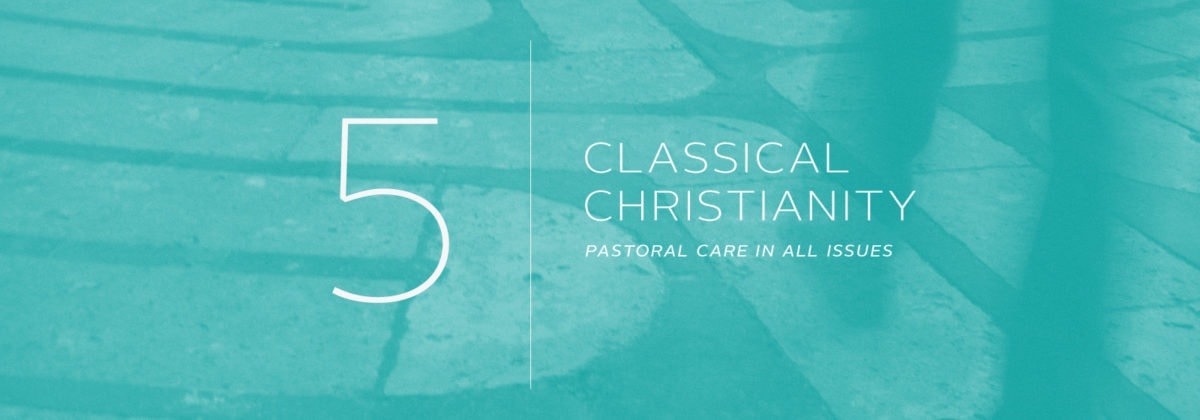A conversation with a friend. A visit to someone’s home. Checking out Instagram. Opportunities for envy are everywhere.
It’s what causes us to start off admiring someone’s appearance and end up comparing ourselves to them and losing. We move from saying to ourselves “Wow, he has a great relationship” to “why does he get one and not me?” We look at our friend’s vacation pictures and feel both a sharp sense of longing and a sense of injustice that we are not so fortunate.
This is the definition of envy; it is the unhappiness we feel at the blessings that other people have.
Envy can be is a difficult sin to discuss, because it is both petty and altogether revealing. It seems so small and commonplace and yet, if we were to tell one another what we envy the most, our insecurities and our deepest desires would be on display. We would lay ourselves bare. That is a terrifying thought.
So we keep it hidden and it grows in the darkness. Envy seeps into the nooks and crannies of our relationship with others and our relationship with God, slowly transforming pleasure and gratitude into bitterness, acrimony and dissatisfaction.
Envy erodes our relationships
Sometimes it seems that our society is set up as a competition. Ads of photoshopped perfection pop up on our screens and gaze pityingly at us from bus shelters. Facebook statuses can be replete with the carefully curated successes of our acquaintances. Everywhere we turn, someone seems more successful, more beautiful and more satisfied with life than we are. It is within our comparison with others that envy finds its foothold.
It doesn’t just stand out on billboards and social media, envy weasels its way into our friendships and family relationships. Of course we rejoice in their triumphs and share their happy milestones, but many of us, if we are honest, sometimes find a little bit of resentment creeping in. Why them? Why not me? It just isn’t fair. Dorothy Sayers remarks that envy “begins by asking, plausibly, “Why should I not enjoy what others enjoy?” and it ends by demanding, “Why should others enjoy what I may not?”
An envious heart means that we are no longer defined by what we are, but by what we are not. We are no longer delighted by the blessings and passions we have, but preoccupied by the things we lack.
This is why in his comprehensive definition of love in 1 Corinthians 13, Paul spells it out for us, love doesn’t envy. Love always wants the best for others, always rejoices in their blessings and their happiness. Love always appreciates the gifts and talents that they’ve been given. Love thanks God for His grace to others; it doesn’t begrudge His goodness.
I can think of relationships in my life that have been marred by my envious heart. The caustic voice inside my head can be very effective at reducing people down to a more manageable size. Sure they have what I want, but sneering silently at them makes me feel better for a time. Eventually, what is in my heart comes out in my words and actions. Envy hangs out with malice and bitterness and can make me an unkind and unlikeable person. I can understand that proverb that claims, “A tranquil heart gives life to the flesh, but envy makes the bones rot.”
“Envy is the Thief of Joy”
Not only does envy poison our relationships, it blinds us to our own blessings; it gets in the way of experiencing God’s grace to us. Even the things about our life or ourselves that we do like become less enjoyable. I think Shakespeare nails it (as he so often does) when he wishes he were:
“…like to one more rich in hope,
Featured like him, like him with friends possessed,
Desiring this man’s art and that man’s scope,
With what I most enjoy contented least.”
It’s the last phrase that always gets me. With what I most enjoy contented least. Envy has stolen the joy that he already possessed.
This is the thing that is so important to remember. Envy doesn’t stay compartmentalized in the areas in which we first feel it; it moves stealthily towards the center, striking at our understanding of who we are. We are no longer defined by what we are, but by what we are not. We are no longer delighted by the blessings and passions we have, but preoccupied by the things we lack.
In this way, we become blind to the grace of God in our lives. We seek God’s blessing, but we wish to dictate the manner of it. The renewing work of grace in our hearts is constricted. The gifts we are meant to offer the body of Christ, we offer grudgingly or with little joy, our eyes focussed on the gifts that we value more.
Breaking the habit of Envy
So we come to the point that I find most difficult. How do we break the habit of envy? I can see its destructive effects in my life, but it’s sneaky and it has grown into all sorts of cracks. I think the first step is calling envy what it is. It’s not a harmless passing emotion; it’s a destructive force. We need to identify it as such and not let it slink past unnoticed. When you feel envy, name it. Pray that God would increase your love for the person you’re resenting. After all, envy only sees one part of a person. We can’t know all their struggles or their griefs. Ask God to bless them.
The second thing that I have found helpful is to be conscious of the many ways in which God has shown His love and care for me. When I am most envious, I am also the least grateful. Pray for an increased sense of gratitude. Over time, gratitude can become as much of a habit as envy.
Lastly, seek to understand the depth of the love of God, which is neither limited nor finite. He doesn’t have a bankroll of blessings, which will run out if he spends it all in one place. God’s love is vast, but more than that, it is immensely personal. God know us intimately, the gifts and passions that he has given us, as well as the things we long for. The more we learn to lean into the love of God, to trust his care for us, the less time we will spend longing to be someone else.




